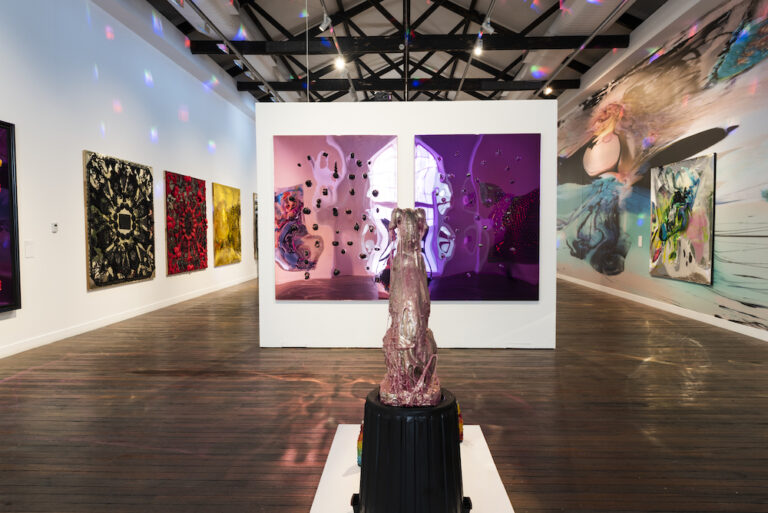
Squirrels, rail links and the Spaceship of Opportunity

What with all the allegations of corrupt conduct surrounding parliamentarians, this old private eye has been kept pretty busy for the last couple of years doing contract work for ICAC and a certain newspaper. As a class of work it’s a cut above finding hidden assets or runaway kids. Privatisation and huge construction jobs are the name of the game, and you get to watch some slick operators in action.
Last week I hung out at NSW’s Legislative Council Standing Committee No. Three, pretending to be a journalist. The committee was spending a couple of days looking at whether the O’Farrell government should get rid of the massive $12.30 surcharge travellers pay to enter or leave the Domestic and International terminal stations on the Airport Line.
Somebody should write a black comedy about the Airport Line saga. Back in the day (we’re talking about the mid-90s here) I was doing some pro bono sleuthing for the community groups fighting the M5 East motorway proposal. They were backing the Airport Line, which was the rival proposal, so I got the inside story.
The whole idea of the line – an engineering triumph, by the way – was for public transport to shoulder the burden of getting folk to and from the airport. The line as a whole cost around $900 million, of which $200 million was for the International and Domestic terminal stations plus Green Square and Mascot. Trouble was, market fundamentalist ideology intervened. The Greiner government had initially promised that the project wouldn’t cost the public a cent. By some Thatcherite magic, the private sector would somehow pay for the whole shebang. But the government couldn’t get its act together. The line had to be completed in time for the 2000 Olympics, which meant it had to be signed off on before the April 1995 state elections and it had to look like a public-private partnership. So Bruce Baird, who was the minister for Transport, Tourism and Roads, cobbled together the deal whereby a reluctant Airport Link Company got to own and operate the four stations.
In the upshot the line was an engineering triumph, and the overall price wasn’t bad either, but the contractual arrangements were a bugger’s muddle. The only way the station operating company could recoup the cost of construction was to whack an access fee on the stations, over and above the normal train fare. It was total madness. The access fee strongly discouraged the patronage that was supposed to pay for the stations and it encouraged people to stay in their cars. If you wanted to get from the airport to the city, it was cheaper to get a cab if you split the fare between a couple of people.
Unsurprisingly, the Airport Link Company rapidly went broke and sued the government, who counter-sued. Years of litigation followed and the Carr government made matters worse by introducing the Cash-Back scheme under which motorists were reimbursed for using the M5 Motorway.
So now we pay people to stay in their cars and penalise them if they use public transport. It’s a hell of a way to run a city, and there’s no guarantee the O’Farrell government will do the right thing, buy back the stations, and make the Airport Line do the job it was designed to do.
It took a few years for the private sector to work out how to turn public-private partnerships into a goldmine, but they finally got the hang of it. Back in March I was sitting in on an industry conference titled “Sydney’s Rail Future 2013”. The whole privatisation gang dropped in: Paul Broad from Infrastructure NSW, Carolyn McNally from Transport for NSW, Rodd Staples from the North West Rail Link project, Stephan Albin from the Urban Development Institute and Tim Williams from the Committee for Sydney. Everybody knew there were fat profits to be made from the North West Rail Link, for which Treasury had allocated a staggering $8 billion plus.
Of course the industry knows it’s being watched. They even joke about it, nervously, when they think they’re among friends.
One speaker at the conference, a vice-president of a big rail construction company, struck an especially revealing note. The man came across like a sales manager giving a pep talk full of dumb motivational slogans. There was mind-numbing stuff about squirrels showing other squirrels where the nuts were, and a slogan about “the spaceship of opportunity”. He even had a lousy photo of a squirrel up a tree.
But as the gibberish rolled on it became apparent he was calling on the assembled commercial rivals to collaborate; to resist being put into competitive bidding situations that might restrict profits. “The biggest barrier is the mindset of competition,” he said. The whole industry should be working together. And then he warned they must all maintain “ICAC awareness”. There it was in a squirrel’s nutshell. A ripple of laughter ran round the room.









